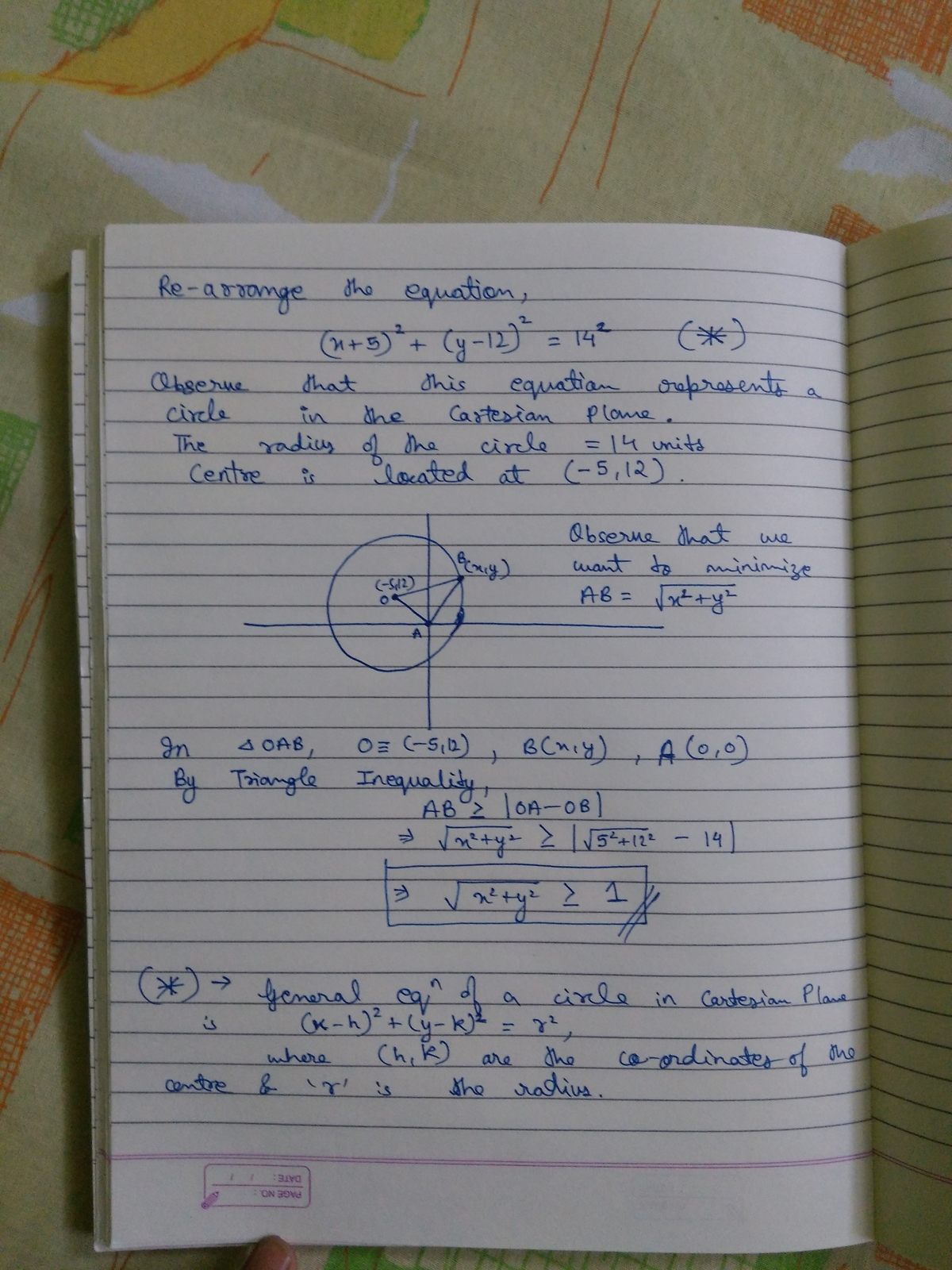Is it really an inequality Problem?
If x 2 + y 2 + 1 0 x − 2 4 y − 2 7 = 0 then the minimum value of x 2 + y 2 .
The answer is 1.
This section requires Javascript.
You are seeing this because something didn't load right. We suggest you, (a) try
refreshing the page, (b) enabling javascript if it is disabled on your browser and,
finally, (c)
loading the
non-javascript version of this page
. We're sorry about the hassle.
4 solutions
Sorry I didnt noticed that you also posted a solution.
Our solutions are same, I have just elaborated things in my solution.
Exactly Same Way. I loved it when I found a geometric proof for this. Is there any algebraic method? Cauchy-Schwarz is not helping
why you are writing in a book from bottom to top (instead of from top to bottom)
For those of you dying (or just plain ol' waiting) for an algebraic solution:
We can rewrite the equation as ( x + 5 ) 2 + ( y − 1 2 ) 2 = 1 4 2 or ( x + 5 ) 2 + ( y − 1 2 ) 2 = 1 4 . By Minkowski's Inequality ,
( x + ( 5 ) ) 2 + ( y + ( − 1 2 ) ) 2 ≤ x 2 + y 2 + 5 2 + ( − 1 2 ) 2
1 4 ≤ x 2 + y 2 + 1 3
x 2 + y 2 ≥ 1
So, our final answer is 1
I generalized my solution and came up with the exactly same inequality you used and was thinking that it was an invention, but it's Minkowski's Inequality. :(
We know that minimum distance of a point from the circle is equal to CP-r,where c is center,P origin(here) and r radius.

Completing the square, we can write the equation of the circle as ( x + 5 ) 2 + ( y − 1 2 ) 2 = 1 4 2 . The answer is 1 4 − 1 3 = 1 , the difference between the circle's radius and the distance of the circle's center from the origin.